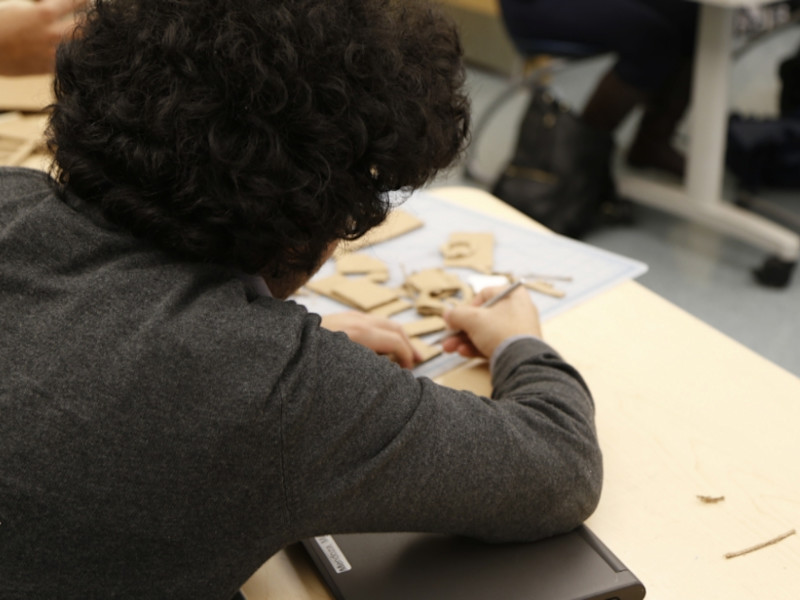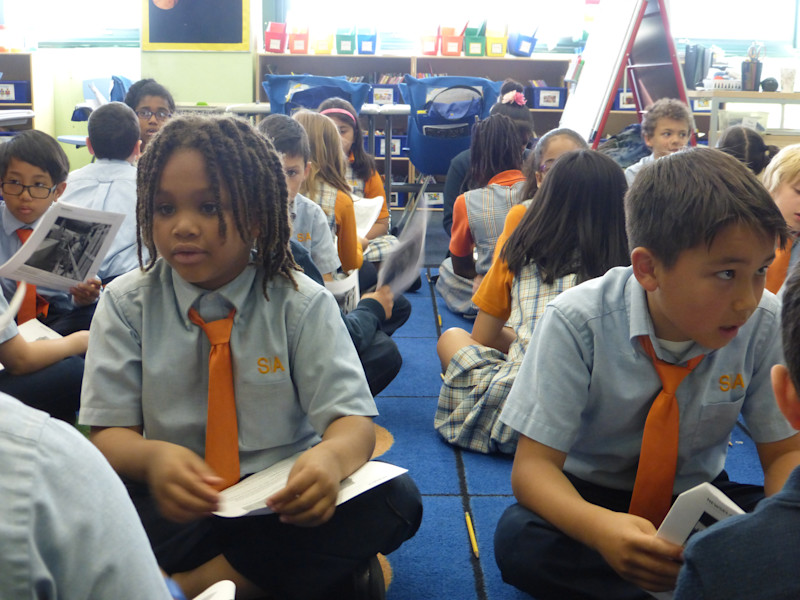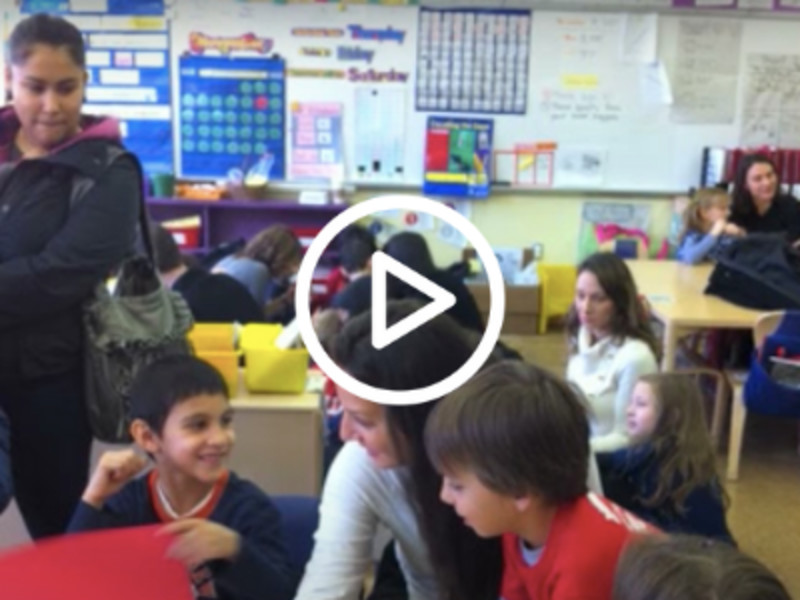English Learners
More than 40 percent of New York City public school children speak a language other than English at home. Every school offers services for children learning English.
Every school in the city offers help to children who are learning to speak, write and read in English. Children learning English typically spend most of their day in classes with English-speaking students. They also have an hour or more of instruction a day with a special teacher, in a program called English as a new language (formerly English as a second language). When your child starts school, the teacher will give her a test to see what kinds of help she needs. Parents may choose the kind of instruction they prefer.
Some schools offer transitional bilingual education or dual language programs.
Bilingual classes offer students instruction in English part of the day and in their home language the rest of the day so they can study academic subjects like math and science in a familiar language, while gradually increasing English over time. If at least 15 children in the same grade speak the same language the school must offer bilingual classes.
Dual-language programs teach children to read, write and speak in both English and another language. Ideally, half the students are native speakers of English while half speak the other language (Spanish, Chinese, French, Haitian Creole, Russian or Korean, for example). Dual-language programs allow children to maintain and perfect their native language while learning English and allow English speakers to become fluent in a second language. Look for the "dual language" icon in the "narrow your results" part of the school search.
Older students who are new to the United States may want to consider attending a high school specially designed for new immigrants. Look for the "new immigrants" icon on the "school search" advanced-search function.
Parents who don't speak English are entitled to translations of important documents and interpreters for meetings with teachers and school staff. The Department of Education website offers information in many languages.
If you have trouble getting the classes you think your child needs, call the Advocates for Children hotline, (866) 427-6033, Monday through Thursday from 10 am to 4 pm.


